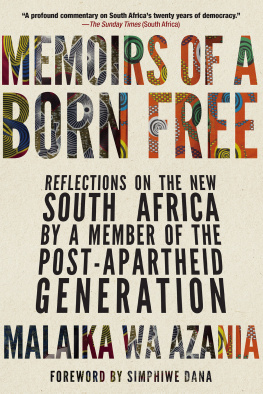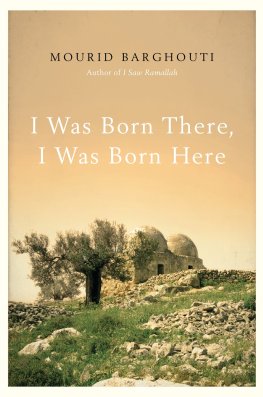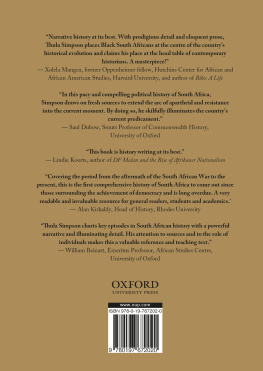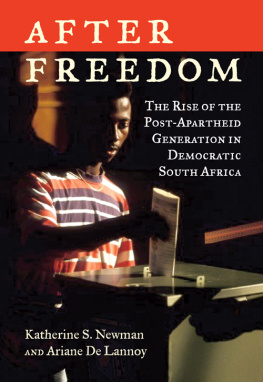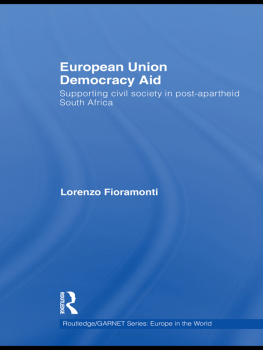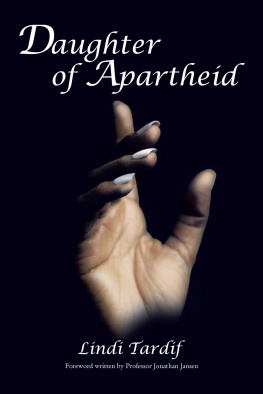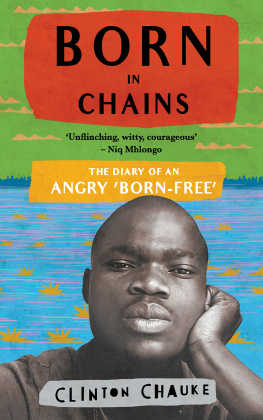Introduction to the
US Edition
IT HAS BEEN FOUR YEARS since Memoirs of a Born Free was first published in South Africa. So much has happened since then. And while I remain the same young black woman who is committed to the struggle for justice for black people in a country that continues to deny us our humanness, I am also a different person. A lot has happened in four years, and though some events have bruised me in unimaginable ways, some have strengthened my belief that another South Africas and indeed another world, is possible. The #FeesMustFall protests that swept through the country in 2015 and 2017 were a watershed moment for our troubled democracy. I shall elaborate on that later.
I laid my mother to rest on the seventeenth of June 2017. She had passed away a week earlier after losing a brief but heart-wrenching battle with gastrointestinal cancer. She was only forty-five years old. Since her death, I have been struggling to find ways and time to deal with my grief. It probably sounds strange to hear a person say they do not have the time to grieve, but when you are a young black graduate from a working-class background, you begin to realise that grief too, like so many things in life, is a luxury that you simply cannot afford. At least not yet.
I was preparing for my mid-year exams when my mother fell ill. I had last seen her six weeks beforeat my graduation for my undergraduate degree. Though a bit weak and unable to eat solid foods, she did not look to me like someone who was dying. I am not exactly sure how a dying person looks, but I would expect them to look less alive than my mom did. Anyway, for many years, she had been a health fanatic and at the time was a raw foodist. She was, in my view, the least likely candidate for death due to health reasons. But being a bit concerned, I suggested that she go get tested just in case her illness was more serious than it appeared. Within a few days, she had a diagnosis: gastrointestinal cancer. I would later find out that the doctor had informed her that the disease was terminal, and that she had less than three months to live. She died six weeks after the diagnosis.
I can distinctly recall the very minute that I knew my mother would die. It was just a few hours before she was pronounced deadthree days after being admitted at Leratong Hospital. On the eighth of June, while I was preparing for an exam the following day, the vice chancellor of my university, Dr Sizwe Mabizela, came to my apartment and asked me to postpone my exam and go see my mother. She had been admitted to hospital the day before, and indications from those back home were that she was slowly getting better. I wanted to write my examI believed, right until the moment I saw her lying in the hospital bed, that she would recover. I therefore did not see the need to miss an exam, and insisted that I would take the first flight out of the Eastern Cape Province after my exam. But the urgency in Dr Mabizelas voice convinced me to leave immediately, and within hours, my partner and I were on a flight to Johannesburg, paid for by a friend, Mary Metcalfe, who had been in contact with Dr Mabizela throughout the day.
Upon our arrival in Johannesburg, a friend drove us to the hospital, where I witnessed something that no child should ever have to see. My mother was lying in a hospital bed, comatose. But unlike the comas that one sees on television, where a patient is resting peacefully, my mother was shaking uncontrollably. I am not sure what was scarier: the involuntary movements that her body was making or the wide-open jaundiced eyes that were staring at me, with dried tears running down the cheeks. My mother, the strong and beautiful Dipuo Mahlatsi, was dying. The doctor informed me that they could not operate on the tumours that they had found in her brain (the cancer had metastasised) because she was in an advanced stage of kidney failure. Even without saying the words, I understood what the doctor was telling me: my mother was severely ill and there was absolutely nothing that they could do for her except watch her die.
My mom died a few hours after my visit. She never woke up from the coma. When my aunt broke the news to me over the phone (the hospital contacted her), I did not shed a single tear. I had wept uncontrollably, for hours, after seeing her. I had cried from the moment the doctor told me that we had to pray for a miracle, and fell asleep in a pool of my own tears. I knew when I left the hospital that the next time I would be there was likely to fetch her corpse. A part of me wished for that, because to lose her so suddenly was more bearable than to watch her suffer for many months and then eventually die. I am not a medical professional, but I knew that if she were to live, it would be a life of unbearable pain and indignity. My mother, vivacious and indomitable, would have most likely been in a vegetative state, dependent on dialysis and all kinds of invasive and painful treatment for her terminal cancer. Right before she fell into a coma, she had ceased to speak. What kind of life would the loud and talkative Dipuo have had if she had lost her ability to speak? How would we be able to take care of a terminally ill loved one when we barely had enough resources to survive? What damage would seeing my mother wither away have had on my fourteen-year-old brother, who has already been made fragile by an absent father who comes and goes from the childs life as he pleases? In many ways, my moms sudden departure was a blessing. And yet knowing this does not make the pain less excruciating.

